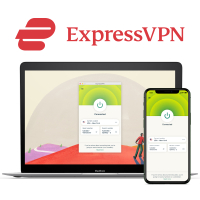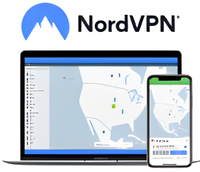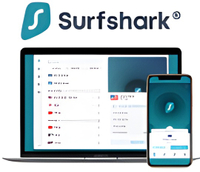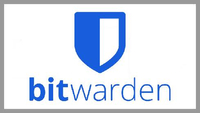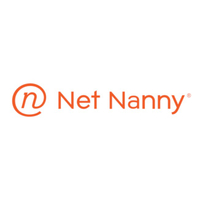How to protect your child online
How to safeguard your child against the dangers of the internet

- Top 3 VPNs
- How to choose a VPN
- How we test VPNs
- VPN FAQs
- Top 3 antivirus
- How to choose an antivirus
- How we test antivirus software
- Antivirus FAQs
- Top 3 password managers
- How to choose a password manager
- How we test password managers
- Password managers FAQs
- Best parental control app
- How to choose a parental control app
- How we test parental control apps
- Parental control apps FAQs
From education to entertainment and everything in between, it's becoming increasingly difficult to do just about anything without the internet. While the online world is filled to the brim with opportunities, it's not without its pitfalls. As a parent, you must take adequate measures to protect your child from illegal surveillance, data theft, cyberbullying, and other internet crimes.
The best way to go about your child's online security is to install both protection software, for example a VPN, an antivirus and/or a password manager, and a parental control app on their device. Together, they will anonymize your child on the internet, safeguard their device from malware and viruses, prevent their personal details and online accounts from being compromised, and allow you to monitor their online habits, as well as limit their device/internet usage for their own good.
To zero in on the best security software for your needs, you need professional help, and that's where we come in. TechRadar experts review and compare the best VPNs, antiviruses, password managers, and parental control apps for a living, so you can rest assured that all of the tools we've recommended in this guide are industry leaders and the best at what they do.
The best VPN in 2025
A VPN is an essential part of your online security toolkit, as it spoofs your IP address and protects both you and your internet activities from being tracked down by hackers, ISPs, and government authorities.
Not only that, but the best VPN services can also give you access to geo-restricted content, be your gaming buddy by keeping you safe from DDoS attacks and ISP throttling, as well as give you access to discounts and sales that may not be available in your region.
Here are our top three recommendations:
1. ExpressVPN: the best VPN service in 2025
ExpressVPN is the best VPN overall, thanks to its easy-to-use apps, rock-solid security, and a wide network of servers around the world. With powerful unblocking capabilities, it’s also a perfect pick for streaming enthusiasts who want access to geo-restricted content.
It’s admittedly not the cheapest, but TechRadar readers can enjoy 3 months of extra protection and 1 year of Backblaze’s cloud storage for free – and there's also a 30-day money-back guarantee in case you change your mind.
2. NordVPN: the fastest VPN around
NordVPN is arguably the biggest name in the industry and it lives up to its reputation by offering class-leading connection speeds and an affordable one-stop security suite that includes a VPN, a password manager, ad-blocking, and built-in antivirus software.
It's also the best VPN for Netflix, unblocking every library we threw at it in our testing. Try it on for size risk-free with a 30-day money-back guarantee and see how it compares to ExpressVPN.
3. Surfshark: the best cheap VPN
Surfshark is great for those on a tight budget, offering excellent security and lightning-fast speeds from just $1.99 a month – and it's our go-to service for protecting multiple devices on a single subscription, thanks to its unlimited simultaneous connections.
With servers in more than a hundred countries, it’s a force to reckon with for unblocking streaming sites and its one-click connect functionality makes it ideal for beginners as well. However, if you’re in two minds, there’s a 30-day money-back guarantee, so you can try before you commit.
How to pick a VPN to secure your child online
When deciding which VPN to go for, the security offered by the VPN is the most important factor. It must use industry-grade encryption and a no-logs policy to ensure that your connection stays secure at all times. Other features you need to pay attention to are kill switch and IP leak protection, as well as split tunneling or port forwarding - if those are your priority.
Next, check the number and location of servers. Are the servers spread evenly around the world? If not, even a higher number of servers may not fetch you excellent speeds and the sort of unblocking capabilities that you may be looking for.
It’s worth noting that although free VPNs provide basic internet security, they lack tools such as dark web monitoring, identity protection, split tunneling, and even the ability to evade geo-blocks. Instead, if you’re heavily cash-strapped, I’d recommend opting for a good cheap VPN.
Another important factor is the number of simultaneous connections. While most providers come with 6-10 multiple logins, Surfshark and Private Internet Access offer unlimited simultaneous connections.
How we test VPNs
As per our VPN testing methodology, we begin at the provider’s website where we comb through its privacy policy, support options, whether it employs tracking cookies on its site, and any claim it makes to find out if they're an exaggeration or clear-sighted.
We use two locations and a total of around 120 tests to zero in on the provider’s speeds. Next, we download its Windows, Mac, iOS, Android, and Linux apps and test each of them for potential data leaks. This is also where we’ll play around with the interface and all the settings menu to evaluate its ease of use.
The kill switch is something we thoroughly evaluate during our testing. We intentionally turn off the VPN connection for 15-20 seconds to observe how the VPN reacts. Does it block the internet connection or continue running as if nothing happened?
Next, we check if the VPN is capable of unblocking geo-restricted content from around the world. For this, we try to access platforms like Disney+, Netflix, and Amazon Prime from three different locations.
Using a VPN FAQs
Are VPNs safe?
All of the providers on our list of the best VPN services are extremely safe. However, not all VPNs are created equal, and there are hundreds of them that track your data and IP so that they can turn a profit by selling your information to whoever pays for it.
Only VPNs with a no-logs policy (even better if it has RAM-only servers that wipe off any data on every boot), industry-standard AES 256-bit encryption, foolproof security essentials like a kill switch, and support for all of the most secure encryption protocols, including OpenVPN, WireGuard, and IKEv2, can be considered trustworthy and worth your time and investment.
Is it legal to use a VPN?
Short answer – yes.
You can use a VPN as long as you’re in a country that has legalized the use of VPNs, which is most countries around the world, by the way. However, using a VPN may still attract fines and other punishments if you use it for illegal purposes, such as downloading a particular game at a lower price, which may violate the game provider’s T&Cs.
Also note that if you’re traveling to countries like China, Russia, Turkey, Oman, or Turkmenistan, you may not be able to use a VPN at all, use only government-appointed providers, or face other restrictions, depending on the country you’re visiting.
The best antivirus in 2025
New malware attacks have seen a huge rise in recent months, so it has become imperative to install a good antivirus app on your and your child’s devices, as it will keep them free from malicious software. This will stop bad actors from infiltrating their device and stealing their personal information.
Plus, many antivirus providers also offer other cybersecurity software (for example password managers or VPNs) to keep you as safe as possible without having to pay for multiple different services.
We’ve scored the market, and these are the three best antivirus software right now:
1. Bitdefender: the best antivirus software overall
Bitdefender is a force to reckon with when it comes to getting rid of both known and new malware files, and that too, at blazing speeds. Its impact on system performance is pleasantly low, and the extra cybersecurity tools such as a VPN, a firewall, and safe banking tools make it all the more value for money.
What’s even better is that there’s a 30-day money-back guarantee, meaning you can try it on for size without risking a single penny.
Visit the US site
Visit the UK site
Visit the Australia site
2. Norton: the best antivirus for malware and identity protection
Norton will fit your bill if you’re looking for all-round protection – you're getting a password manager, an unlimited VPN, online storage, parental controls, and class-leading identity theft protection that monitors the dark web and stolen data banks to alert you if/when there’s a breach
There’s also a 60-day money-back guarantee and a Virus Protection Promise that make it every bit worth a trial. Sign up for its auto-renewal program and avail of these benefits.
Visit the US site
Visit the UK site
Visit the Australia site
3. Avast One: the gamer's ally
Avast is not only the best at identifying and removing malware but it also comes with an excellent gaming mode that's enabled by default and removes frustrating ads, popups, and reminders, making it a top choice for gamers.
A stripped-down free tier packs all the basics, but I recommend going for the premium plan as it comes with tons of valuable extras a VPN, a system scanner, webcam monitoring, a password manager, and more.
Visit the US site
Visit the UK site
Visit the Australia site
How to pick an antivirus to secure your child online
Before picking an antivirus solution, you need to check if it is capable of detecting and removing all possible system threats, including malware, spyware, ransomware, and so on.
A good way to do that is through detection rates. An antivirus solution with a high detection rate – preferably over 95% – and a low number of false positives is an ideal choice. Additionally, you can skim through the ratings given by independent labs, such as AV-TEST and AV-Comparatives, that test antiviruses daily.
In addition to your system, the antivirus you choose must also be able to protect your network connections. After all, the internet is the primary source of threat actors. Look for features like a strong firewall, real-time scanning, identity theft protection, alerts for suspicious websites, and other online protection tools.
You may also prioritize providers that bundle solutions like a VPN, a password manager, and/or parental controls to get all-round security and the best bang for your buck.
Speaking of value for money, your budget is an important factor. While free antivirus products can be more than enough if all you’re looking for is basic protection, they won’t come with the above-mentioned extras, nor will they be able to cover multiple devices at the same time.
How we test antivirus software
TechRadar experts test the top antivirus software across core aspects like performance, ease of use, and value for money. We start things off by deliberately visiting malicious websites and downloading malware files to check if the antivirus blocks, identifies, and removes these threats. However, we don’t stop here.
To determine the true effectiveness of an antivirus, we bombard it with tailor-made malware that’s designed by our experts. We avoid the popular EICAR test because almost all antivirus companies optimize their products to pass it with flying colors. Customized malware also allows us to check if the antivirus is capable of detecting new threats.
Apart from our own evaluation, we also look at the scores and reviews given by two independent testing labs: AV-Comparatives in Austria and AV-TEST in Germany.
To review the app’s impact on your device, we check if the system has slowed down after installing the antivirus and while it’s running scans in the background. For this, we launch several programs, open multiple browser tabs, and try to attach files to emails and then we notice the time it takes to complete these tasks. We also leverage online speed test websites, whose results supplement our first-hand feel of the software.
Customer support isn't overlooked, either. We rate various antivirus software based on how prompt, accurate, and in-depth their support options are, including live chat, email, phone, and/or help articles.
Using antivirus FAQs
What is the best antivirus of 2024?
Bitdefender is the best antivirus in our testing, thanks to its ability to remove both known and unknown malware files at blazing speeds and minimal storage space requirements.
We recommend opting for the Total Security plan where you'll get a ton of extra cybersecurity tools, including an app lock, a firewall, a Wi-Fi scanner, and real-time data breach alerts, all of which you can try risk-free with a 30-day money-back guarantee.
Is free antivirus enough?
While free antivirus software can offer robust protection from malware and other threats, premium products offer extra protection and features, such as identity theft protection, parental controls, dark web monitoring, and even bundled VPNs and password managers so you can enjoy all-round protection without breaking the bank.
What's more, paid solutions also don't come with irritating ads and popups, which you may have to put up with in the case of free solutions.
The best password manager in 2025
Given that your child may not follow the best practices for password and online account management, they need a password manager to protect their login credentials and personal details from falling into the wrong hands. A top password manager typically includes an auto-fill feature, data recovery, and cross-device syncing, as well as the ability to detect weak passwords and suggest strong ones in their place.
Based on our testing, these are the best password managers on the market right now:
1. NordPass: the best password manager right now
NordPass is a feature-packed password manager that has everything you could hope for, including unlimited password storage, easy-to-use platforms across various devices and browsers, and six multiple logins—meaning it’s ideal for individuals, families, and businesses alike.
The free plan can be ideal for those on a thin budget, but since it can’t detect weak passwords or sport multiple logins, you’ll find better value in its premium plan which comes with a 30-day free trial so you can try it out before you commit.
2. Dashlane: the best password manager interface and security
Dashlane is not only the best-looking password manager but it’s also incredibly secure, thanks to real-time phishing alerts and a killer bulk password changer that can reset all of your passwords at once.
The premium plan offers cast-iron protection as it’s packed with add-ons, including dark web monitoring, secure document storage, a bundled VPN, and multi-factor authentication. Put it to the test and see how it compares to NordPass.
3. Bitwarden: the best free password manager
Bitwarden offers a feature-rich free tier, making it the best free password manager. You’re getting top-of-the-line security features like multi-device synchronization, 2FA, optional self-hosting, and unlimited password storage without paying a single penny.
It’s also open-source, meaning it’s a transparent and trustworthy password manager, and although the free plan is absolutely stellar, if you’d also like more 2FA options, password sharing, and the ability to detect weak passwords and unsecured websites, go for its paid plan.
How to choose a password manager to secure your child online
Security and privacy are the primary factors you should consider while choosing a password manager. The provider you pick should use rock-solid encryption and security measures to protect your passwords and passkeys, which is non-negotiable.
Next, ensure that the provider adheres to strict privacy norms – they mustn’t share your personal data with unauthorized third parties. Also, they should use a zero-knowledge framework, meaning even the password manager company or any of its employees won’t have access to your passwords.
Another important factor is the location of your stored passwords. You’ll have two options – cloud vs local storage. The latter offers unparalleled privacy because your data is stored on your device itself – it never reaches the internet. On the other hand, cloud-based password managers give you the ability to protect multiple devices at the same time as well as cross-device synchronization, which makes them more practical in today’s day and age.
Then, consider the level of security you want and your budget. Free password managers aren’t rubbish, especially if you choose a provider like Bitwarden, but paid plans offer all-round protection with features such as multi-factor authentication, biometric login, dark web monitoring, bundled VPN/antivirus/parental controls, and more.
How we test password managers
We put as many as 30 password managers under the pump to zero in on the ones that are worth your time and money. We download each password manager on every possible device – Windows, Mac, Linux, Android and iOS. We also test out their browser extensions, such as Chrome, Firefox, and Edge.
Our experts then use the app and all of its features for a considerable period to see if everything works as advertised. In addition to evaluating how simple and easy to use the app is, we also test all the support options, including live chat, email, and phone.
A password manager, unlike other tools, contains a lot of your sensitive data, and it’s neither convenient nor advisable to switch from one provider to another frequently. For this reason, we stress-test them under various conditions to find out any possible vulnerabilities so that you can pick the correct solution for your needs in the first go.
For more info on our testing process, check out our how we test page for TechRadar.
Password managers FAQs
Are password managers safe?
All of the best password managers are very safe, as they employ rock-solid encryption methods and zero-knowledge architecture, meaning no one other than the user (not even the password manager company or cloud backup service) has access to the passwords contained in the encrypted vault.
However, despite their use of cutting-edge technology, password managers are not absolutely foolproof, so it's always a good idea to pair them up with healthy cyber security practices. These include avoiding using them on public Wi-Fi, choosing a strong master password, and refraining from sharing personal details over compromisable communications channels.
Can password managers be hacked?
Password managers are like any other computer system, meaning they can be hacked. There have been a couple of instances in the recent past (Passwordstate and LastPass) where hackers managed to steal confidential user information, such as addresses, payment information, and names, that were stored in the vaults of these password managers.
Needless to say, these tools are not on our list of the best password managers, and all of those that are in there boast an exemplary record of safety, using industry-standard encryption methods to keep snoopers at bay.
The best parental control app in 2025
A good parental control app will allow you to limit your child’s screen time as well as block their access to apps and sites that harbor threats, such as inappropriate/adult content, malware, ill-intended strangers, and more. Additionally, you’ll be able to keep an eye on their whereabouts, who they’re chatting with, and their online habits in general.
We put the best parental control apps to the test, and these are the winners:
1. Aura: the best parental control app overall
Aura is more than just a parental control app, as it comes with every viable security tool you need to protect your child online, including a password manager, VPN, antivirus, password storage, and ID protection.
In addition to a simple setup that involves just scanning a QR code on the device you wish to use it on, the app itself is very easy to use. You’ll also be able to block access to unwelcome content and receive real-time alerts if/when your child falls prey to cyberbullying.
2. Qustodio: the best content monitoring with a good free tier
Qustodio knocks it out of the park when it comes to text and call monitoring – plus you’ll be able to block phone numbers, monitor your child’s social media usage, set time limits for individual apps and devices, and even track their location.
It’s also ideal for those pinching for pennies, thanks to a feature-packed free plan that allows you to set rules and time schedules, as well as block inappropriate content.
3. Net Nanny: the best web filtering
Net Nanny boasts all the essential features, but its web filtering capabilities are second to none – it uses real-time content analysis to alert you about any issues with the sites your child is attempting to access.
You can not only block or restrict app usage and limit screen time but also view a detailed report on your child’s screen use. Other standouts include the built-in YouTube monitoring and feature parity between its iOS and Android versions.
How to choose a parental control app to secure your child online
Before anything else, consider the age of your child, as this will determine the kind of features you'd need. For instance, if you have a teenager, they’ll probably demand more freedom when it comes to device surveillance, so you won't need advanced features like app blocking or geofencing.
However, if your child is under 12, you absolutely need the ability to block apps, websites, and offensive content, text and call monitoring, and screen time limits, as well as tracking abilities.
Also, note that the more control you desire, the higher the amount you'll have to shell out. Alternatively, you can go for an affordable solution that nails the basics.
Lastly, consider your level of expertise. If you’re not tech-savvy, you’ll need a more plug-and-play parental control app with an intuitive dashboard that's customizable and displays all relevant information neatly.
How we test parental control apps
First, we set up an account with the parental control app and install it on various device types. Then, our experts stress-test all the features on parameters like usability, performance, and value.
We spend almost 10 hours with each tool to thoroughly test it, including how easy it is to set up and use, what its interface is like, and whether its features work as it says on the tin.
While we’re at it, we also ensure that we replicate the browsing habits of both children and parents so that we can arrive at accurate and real-world conclusions. We also keep the testing platform constant throughout so that there are minimum variances in results and the comparison is a fair one.
Lastly, we test the provider’s support wing. Do they have adequate knowledge about the product? Are there enough guides on setting up, installation, and how the features work? Do the agents respond within a reasonable time and are their replies actually helpful? These are some questions we find the answers to.
Parental control apps FAQs
Will parental control software block all inappropriate content?
First of all, what you class as ‘inappropriate’ depends on you and the age of your child. A parental control app will help you zero in on your child's online habits, what content they're watching, who they're chatting with on the internet, and how much time they're spending online. Then, depending on what you don't want them interacting with, you can block that using the app's blocking capabilities.
It's also worth noting that your child may find their way around the parental control app's surveillance, so it’s important to update the software regularly and take an interest in their browsing habits to make sure they haven’t created online accounts outside of the parental controls.
What features should I look for in a parental control app?
The parental control app you pick should absolutely be able to limit your child's screen time, meaning your child's device will automatically shut down once the predefined time limit is breached.
Other important features to look for include app/website/chat room blocking and the ability to manage multiple devices of various family members from one unified dashboard.
Are you a pro? Subscribe to our newsletter
Sign up to the TechRadar Pro newsletter to get all the top news, opinion, features and guidance your business needs to succeed!

Olivia joined Tom's Guide in October 2023 as part of the core Future Tech Software team, and is the Commissioning Editor at Tom's Guide. With a background in cybersecurity, Olivia is interested in how VPNs protect users' privacy, and how they improve online safety. She also regularly uses VPNs to make sure they deliver what they promise, and specializes in testing VPNs with streaming sites.
